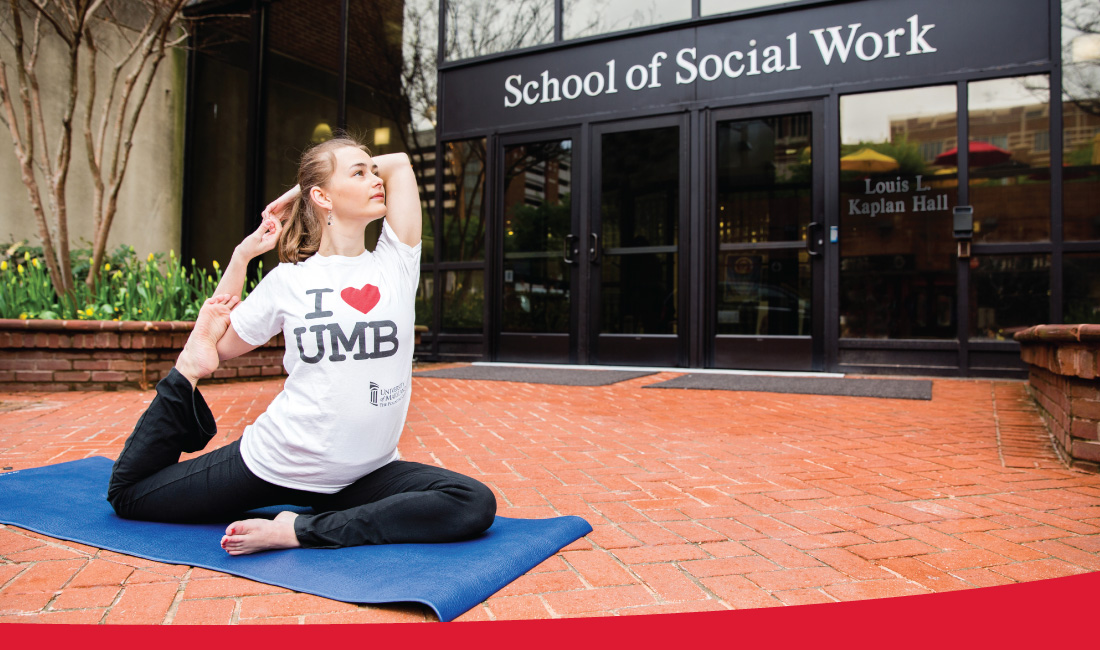
Kaila Williams '14, MSW
University of Maryland School of Social Work
Caring for the Caregivers
Kaila Williams is just 24 years old, but her academic and professional interests have long skewed toward generations much older than her own. Williams, MSW, a graduate of the University of Maryland School of Social Work, traces her interest in the elderly to dinnertime conversations with her father, an accountant whose work with hospitals and nonprofits made him something of an expert in Medicare reimbursement. With Americans living considerably longer than they did years ago and baby boomers burdening an already strained health financing system, Williams says she saw a critical need for more practitioners in aging.
Williams earned a bachelor’s degree in psychology and sociology from Jacksonville University in Florida. She’d planned to pursue her doctorate in psychology but liked the relative flexibility provided by social work, whose areas of specialization are less rigid than psychology’s. Even so, Williams acknowledges she’ll probably never take advantage of the flexibility her choice offers. Aging, it seems, has her attention―and her heart.
That passion led Williams to work with assistant professor John Cagle, PhD, MSW, whose research focuses on hospice and palliative care, psychosocial aspects of pain and pain management, and caregiving at the end of life. With Cagle, Williams gained significant experience in the areas she was increasingly drawn to: hospice and issues of terminal illness as well as the stress experienced by family members responsible for end-of-life care. She collected assessment data on the social work services provided to hospices; she co-authored articles on interprofessional education and communication in palliative care; and she researched caregiver burden.
“Caregivers are less likely to seek preventative care. They’re less likely to look after themselves physically―in terms of exercising or eating healthy foods. They’re more likely to have high, chronic stress. They’re pressured financially, physically, and emotionally,” Williams says. “If we can help them with their quality of life, maybe they’ll be less burned out and more able to enjoy their last days with their loved ones.”
It was to this end that Williams developed an eight-week course for family caregivers that combines aspects of counseling with yoga, meditation, and breath work (promoting relaxation through the conscious control of breathing).
An avid yoga practitioner, Williams completed a yoga teacher training program through the Center for Integrative Medicine at the University of Maryland School of Medicine. She simultaneously developed the caregiver course, which the center’s teachers evaluated for safety and efficacy.
The course builds more than mental and physical resiliency. It builds community, which is essential for caregivers whose 24/7 responsibilities can make them feel isolated and alone. “The point is to get the caregivers acclimated to themselves―to their own emotions―and to each other. I want them to be able to talk about some of their issues, how they’re feeling,” Williams says. Yoga practice, meditation, and breathing exercises are bookended by these opportunities to talk and share with one another―as Williams puts it, to forge “a connection to others who are going through the same thing.”
Williams looks at the challenges of end-of-life care through a holistic lens. As one of eight students chosen as fellows for the 2013‒14 UMB President’s Symposium and White Paper Project, Williams partnered with peers in the graduate school and the schools of law, pharmacy, and medicine to identify and overcome obstacles to interprofessional education and collaboration. Interprofessionalism is especially important in the highly interdisciplinary specialty of gerontology, where researchers and practitioners from more than a dozen fields study the complex social, psychological, and biological aspects of aging. It was this same drive to see the big picture that led Williams to work with the National Association of Social Workers and Students United for Policy Education and Research, where she could learn more about the large body of public policy affecting seniors.
Now the Southeast Florida Regional Development Manager for the ALS Association, Williams continues her work on behalf of those at the end of life and on behalf of the families and friends who love and care for them. She’s also interested in researching whether meditation and breath work could be used as palliative care tools for hospice patients.
“One of the reasons I’ve embraced the field of end-of-life care is because I’ve had hospice patients I was close to―patients I lost,” she says. “Being a part of that and finding ways to help families through that stress is so rewarding.”


